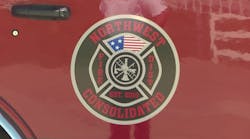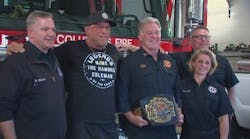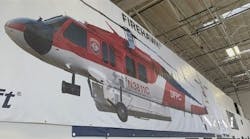What is the most powerful and influential position in a fire department? No, it’s not the chief. It’s the company officer. Unfortunately, many chiefs and company officers don’t recognize this important concept.
The company officer has the power to influence the crew in a variety of areas. Crew members look to the company officer for what is acceptable according to policy and culture. If company officers model bad behavior, they are cultivating bad behavior in others. If company officers ignore bad behavior, they are condoning it. If company officers participate in the rumor mill, they contribute to spreading gossip. If they ignore gossip instead of nipping it in the bud, they condone it. If company officers bad mouth a policy, the crew takes on the negative disposition. If company officers bad mouth management, the crew follows their lead. Maybe you’ve heard, “Attitude reflects leadership.” This is clearly reflected in a crew under the influence of a company officer.
The “us-against-them” mentality often makes it difficult for company officers to be objective leaders. Realistically, they should have one foot in management and one foot in labor, helping bridge the gap and alleviate some of that “us-against-them” mentality. But that’s not usually what happens. Typically, they have a pinky toe in management and the rest of their body in labor. As a result, it is difficult for them to see the department as a team working toward the same goals and objectives instead of groups fighting for what they feel they deserve. Learning to work constructively with both management and labor is a critical role for company officers.
Company officers hold the most influential and powerful position when it comes to limiting department liability or contributing to it. The failure of company officers to supervise crew members is a common problem in many fire departments. Some company officers even cover up policy violations and mistakes made by their crew members in an attempt to “be the hero.” Such behavior brings a tremendous amount of liability on a fire department and a city. Additionally, in many states it puts company officers in a position to be held personally liable for failure to supervise. For example, if a company officer knew, or should have known, that a firefighter had a drinking problem and did nothing about it, they can be held personally liable. If that firefighter drove the engine while under the influence of alcohol and caused an accident that injured or killed someone, that company officer would have a lot to answer for.
Many company officers do not realize how important their power of influence is. Winston Churchill said, “The price of greatness is responsibility.” Some firefighters want the greatness of getting that promotion, but don’t embrace the responsibility and accountability that comes with it. Company officers must take this responsibility seriously or demote themselves.
Because the company officer position is so important, departments should be investing heavily in the leadership mentoring and training of company officers. This should start while they are still rookies. They must clearly understand the power and responsibility they will have as a company officer. They should be mentored in how to develop crew members into informal leaders who take responsibility and accountability for their actions and behaviors. They should be mentored and trained in how to have tough conversations with crew members about their behavior and how to conduct a professional and effective subordinate counseling session. Most importantly, they must be mentored and trained in how to be role models and be the leaders they want to see in others.
If you’re a company officer, do you hold yourself and your crew accountable for the standards of your department? Are you willing to have the tough conversations with your crew about gossiping, bullying, policy violations, rude behavior, unethical decisions and giving less than their best? If you think these are not your problem, consider stepping down and letting someone step up who will embrace the responsibility that comes with the job. Sometimes, being an effective leader means recognizing you may not be right for a supervisory position. My encouragement to all company officers is this: Step up – or step down.






